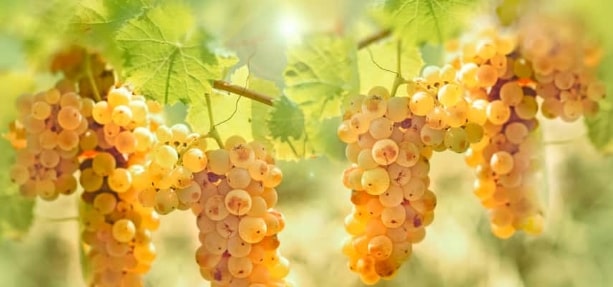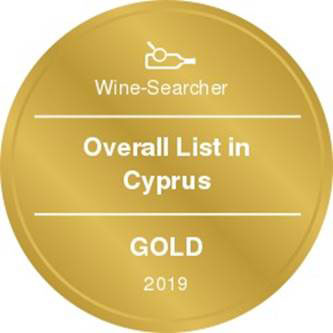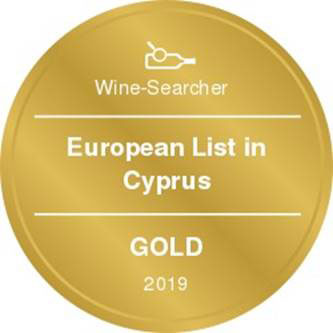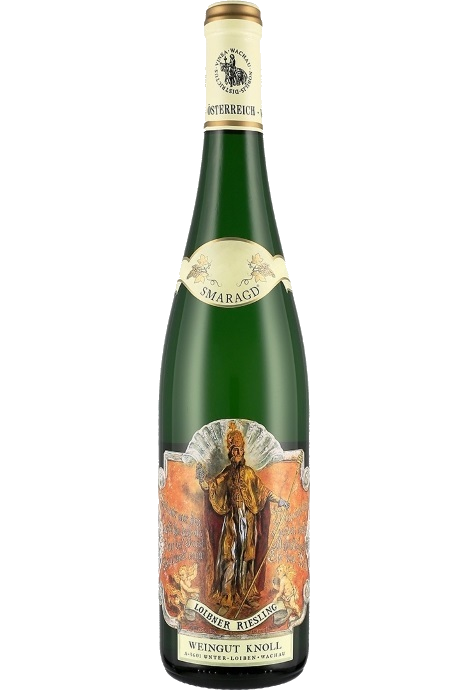KNOLL RIESLING LOIBNER SMARAGD 2022
Country: Austria, Wachau
Grape Varieties: Riesling 100%
Grape Varieties: Riesling 100%
Winemaking Techniques: Hand harvest, fermented with cultured and natural yeast in casks and stainless steel for 5-15 days at 23-26 deg. 9 months on the lees, bottle aged for 1 month prior to release.
Originating in Germany in the 1400s, Riesling is hailed the world over as one of the premier white grape varieties. The 2nd most-planted white grape in Austria, Riesling favours the stony, primary rock soils and cool climates of the Wachau. Sensitive and demanding in the vineyard due to its late ripening and susceptibility to different kinds of rot, winemakers nevertheless prize Riesling for its terroir-expressiveness, a quality that shines especially when grown in Austria’s unique Wachau. Riesling’s acidity and structure, combined with its typical flavour profile of mineralic fruit, make it a supremely versatile food wine, pairing well with the expected white fish and pork, but also able to stand up to the spicier cuisines of India and Southeast Asia.
The steep, stone terraced, Loibenberg, located in the town of Unterloiben, is Emmerich Knoll’s warmest vineyard. Knoll Rieslings from this site perennially display rich, round, and aromatic wines, while still being characteristically dry. This wine fall under the Vinea Wachau’s strict classification system as Smaragd, the highest quality level, based on natural alcohol content.
EMMERICH KNOLL
Emmerich Knoll III, an exuberant spokesperson for the Wachau region, farms the family’s 15 hectares of land and crafts wines that clearly express the Unterloiben terroir where some of Austria’s most famous vineyards can be found. This family-run winery is a treasure that has been estate owned and operated for over three generations. The majority of the Knoll’s vineyard plantings are dedicated to Gruner Veltliner and Riesling, but the family also farms small amounts of Rivaner, Gelber Traminer, Pinot Noir and Chardonnay. A member of “Vinea Wachau Nobilis Districtus,” an association of Wachau winemakers who follow strict quality control rules, the Knoll Winery upholds stringent farming and winemaking standards that vintage after vintage propels their wines to the top of restaurant, collector and critic’s lists. Knoll wines are easily recognized by their distinct label that depicts an ornate image of St. Urban, the patron saint of winemakers and vineyards. While in the Wachau, one can also dine at the family’s acclaimed, 400-year-old restaurant, Loibnerhof Familie Knoll.
Originating in Germany in the 1400s, Riesling is hailed the world over as one of the premier white grape varieties. The 2nd most-planted white grape in Austria, Riesling favours the stony, primary rock soils and cool climates of the Wachau. Sensitive and demanding in the vineyard due to its late ripening and susceptibility to different kinds of rot, winemakers nevertheless prize Riesling for its terroir-expressiveness, a quality that shines especially when grown in Austria’s unique Wachau. Riesling’s acidity and structure, combined with its typical flavour profile of mineralic fruit, make it a supremely versatile food wine, pairing well with the expected white fish and pork, but also able to stand up to the spicier cuisines of India and Southeast Asia.
The steep, stone terraced, Loibenberg, located in the town of Unterloiben, is Emmerich Knoll’s warmest vineyard. Knoll Rieslings from this site perennially display rich, round, and aromatic wines, while still being characteristically dry. This wine fall under the Vinea Wachau’s strict classification system as Smaragd, the highest quality level, based on natural alcohol content.
EMMERICH KNOLL
Emmerich Knoll III, an exuberant spokesperson for the Wachau region, farms the family’s 15 hectares of land and crafts wines that clearly express the Unterloiben terroir where some of Austria’s most famous vineyards can be found. This family-run winery is a treasure that has been estate owned and operated for over three generations. The majority of the Knoll’s vineyard plantings are dedicated to Gruner Veltliner and Riesling, but the family also farms small amounts of Rivaner, Gelber Traminer, Pinot Noir and Chardonnay. A member of “Vinea Wachau Nobilis Districtus,” an association of Wachau winemakers who follow strict quality control rules, the Knoll Winery upholds stringent farming and winemaking standards that vintage after vintage propels their wines to the top of restaurant, collector and critic’s lists. Knoll wines are easily recognized by their distinct label that depicts an ornate image of St. Urban, the patron saint of winemakers and vineyards. While in the Wachau, one can also dine at the family’s acclaimed, 400-year-old restaurant, Loibnerhof Familie Knoll.
Product Id: 0436

For orders €100,00 and above we deliver free to your place
For orders below €100,00 delivery charge €10,00 within city limits
For orders below €100,00 delivery charge €10,00 within city limits

Riesling
Riesling`s twin peaks are its intense perfume and its piercing crisp acidity which it manages to retain even at high ripeness levels.
In Germany, Riesling constitutes around 20% of total plantings, yet it is responsible for all its greatest wines. It is planted widely on well-drained, south-facing slate-rich slopes, with the greatest wines coming from the best slopes in the best villages. It produces delicate, racy, nervy and stylish wines that cover a wide spectrum of flavours from steely and bone dry with beautifully scented fruits of apples, apricots, and sometimes peaches, through to the exotically sweet flavours of the great sweet wines.
It is also an important variety in Alsace where it produces slightly earthier, weightier and fuller wines than in Germany. The dry Rieslings can be austere and steely with hints of honey while the Vendages Tardives and Sélection de Grains Nobles are some of the greatest sweet wines in the world.
It is thanks to the New World that Riesling is enjoying a marked renaissance. In Australia the grape has developed a formidable reputation, delivering lime-sherbet fireworks amid the continental climate of Clare Valley an hour`s drive north of Adelaide, while Barossa`s Eden Valley is cooler still, producing restrained stony lime examples from the elevated granitic landscape; Tasmania is fast becoming their third Riesling mine, combining cool temperatures with high UV levels to deliver stunning prototypes.
New Zealand shares a similar climate, with Riesling and Pinot Gris neck to neck in their bid to be the next big thing after Sauvignon Blanc; perfectly suited is the South Island`s Central Otago, with its granitic soils and continental climate, and the pebbly Brightwater area near Nelson. While Australia`s Rieslings tend to be full-bodied & dry, the Kiwis are more inclined to be lighter bodied, more ethereal and sometimes off-dry; Alsace plays Mosel if you like.
In Germany, Riesling constitutes around 20% of total plantings, yet it is responsible for all its greatest wines. It is planted widely on well-drained, south-facing slate-rich slopes, with the greatest wines coming from the best slopes in the best villages. It produces delicate, racy, nervy and stylish wines that cover a wide spectrum of flavours from steely and bone dry with beautifully scented fruits of apples, apricots, and sometimes peaches, through to the exotically sweet flavours of the great sweet wines.
It is also an important variety in Alsace where it produces slightly earthier, weightier and fuller wines than in Germany. The dry Rieslings can be austere and steely with hints of honey while the Vendages Tardives and Sélection de Grains Nobles are some of the greatest sweet wines in the world.
It is thanks to the New World that Riesling is enjoying a marked renaissance. In Australia the grape has developed a formidable reputation, delivering lime-sherbet fireworks amid the continental climate of Clare Valley an hour`s drive north of Adelaide, while Barossa`s Eden Valley is cooler still, producing restrained stony lime examples from the elevated granitic landscape; Tasmania is fast becoming their third Riesling mine, combining cool temperatures with high UV levels to deliver stunning prototypes.
New Zealand shares a similar climate, with Riesling and Pinot Gris neck to neck in their bid to be the next big thing after Sauvignon Blanc; perfectly suited is the South Island`s Central Otago, with its granitic soils and continental climate, and the pebbly Brightwater area near Nelson. While Australia`s Rieslings tend to be full-bodied & dry, the Kiwis are more inclined to be lighter bodied, more ethereal and sometimes off-dry; Alsace plays Mosel if you like.
 +357 25 76 06 08
+357 25 76 06 08














